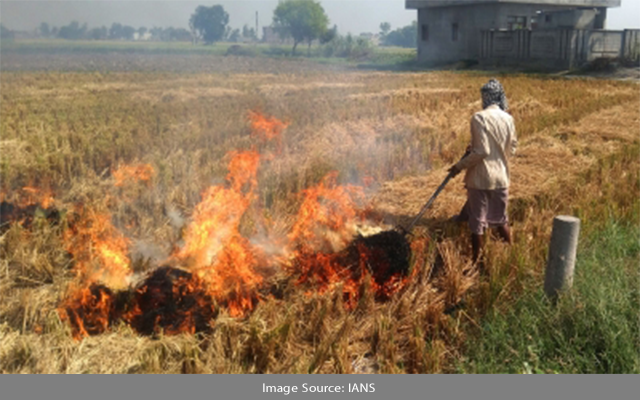New Delhi: The Commission for Air Quality Management (CAQM) on Wednesday said that there is a 51.35 per cent reduction in farm fire counts in northwest India this year compared to the corresponding period last year.
“Total active paddy residue burning events in Punjab, Haryana, NCR districts of Uttar Pradesh & Rajasthan and NCT of Delhi itself have come down from 43,918 in 2020 to 21,364 in 2021 during the period from September 15 to November 2, thus registering an overall reduction in the fire counts by 22,554, which is 51.35 per cent less,” CAQM said in a release here.
The major hotspots of paddy residue burning in Punjab are Tarn Taran, Amritsar, Firozpur, Patiala, Ludhiana, and Kapurthala. Similarly, the major hotspots in Haryana are Kaithal, Karnal, Kurukshetra, Fatehabad, Ambala, and Jind.
During the last one week i.e. from October 27 up till November 2, as against 23,628 cases in 2020, the corresponding period in 2021 has witnessed only 12,853 active cases, thus exhibiting a reduction of 10,775 cases (about 45.6 per cent), it said.
Further, enforcement agencies have so far inspected 8,575 of the total reported sites in Punjab, Haryana and NCR districts of Uttar Pradesh and Environmental Compensation (EC) of about Rs 58,05,000 has been imposed so far.
CAQM officials said they have been intensively pursuing with officials of Haryana, Punjab, and Uttar Pradesh governments for strict implementation of Framework and Action Plan. The Commission had, to curb and abate air pollution from stubble burning, prepared a detailed framework and pursuant to that action plans were finalised by government of Punjab, NCR state governments, and Delhi.
During the current paddy harvesting season, CAQM has been actively monitoring paddy residue burning events from September 15 onwards in the region.
The CAQM release said: “Concerted efforts are being taken by the state governments, departments and various other stakeholders towards better in-situ management of crop residue through the use of CRM (Crop residue management) machinery, PUSA bio-decomposers and facilitating various options for ex-situ utilisation of paddy straw, besides large number of IEC activities, educational campaigns, awareness camps and publicity through print, electronic and social media.”



















